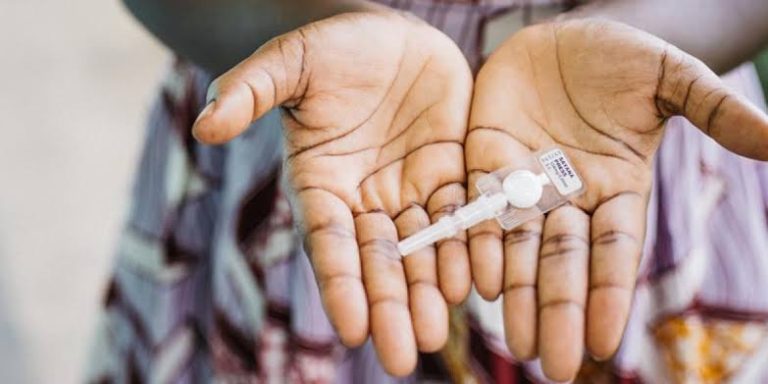Some satisfied users of Family Planning (FP) in Lagos state say using FP comes as a big relief to managing one’s family in present-day Nigeria’s economy.
The users expressed their satisfaction during a field trip evaluation of FP services in Lagos.
The event was part of the activities of a capacity-building training and editorial planning workshop on family planning for media practitioners.
The training was organised by the Development Communication Network (DEVCOMS) with support from The Challenge Initiative (TCI).
It also reports that among the objectives of the training is to sensitise journalists to the TCI FP Intensification Phase plan and also increase media visibility on FP reportage.
According to the World Health Organisation (WHO), family planning is defined as “the ability of individuals and couples to anticipate and attain their desired number of children and the spacing and timing of their births.
This can be achieved through the use of contraceptive methods and the treatment of involuntary infertility.
A family planning satisfied user, Mrs Grace Aniofiok, mother of three, said that she had been using an FP method since 2023 and was satisfied.
Aniofiok said that when she started using the FP method, she was on the implant method but had to switch to the injectable method when she experienced some mild discomfort.
According to her, ever since, she has been okay and advises other women to use any FP method suitable for their body, stressing that it will help families adequately plan for and space the number of children they can comfortably cater for.
Another satisfied user, Mrs Comfort Aghata, a mother of four, said that the current situation in Nigeria made her embrace FP.
Aghata said that she started using FP three years ago and she had been managing her family within the family’s financial means.
She advised other women to embrace FP because it was a lifesaver in managing one’s family.
According to her, she has healed well from her last child’s delivery and now has time to engage in some economic activities to support her family.
Another user, Mrs Emem Idada, a mother of two, corroborated Aniofiok and Aghata’s views, saying that FP was the only thing that made peace to be in her family now.
Idada said that most men would always want to have sex with their partners without recourse to the likely resultant pregnancies, whereas women would always be conscious of that and the implications of any “unplanned” addition to the family.
These different views between the man and the woman always caused problems, and the only way to strike a balance was FP, Idada said.
The Officer-in-Charge of FP services, Akerele Primary Health Centre, Mrs Ajoke Daramola, said that a reasonable amount of users had keyed into the FP programme.
According to her, it is not just married couples, but also young adults who are not married but sexually active, that are embracing FP.
She said that the facility was open to anyone who wanted FP services noting that their services were accessible to all.
Speaking, the Programme Director, DEVCOMS, Mr Akin Jimoh said that embracing FP had many benefits to it.
According to Jimoh, things are tough in the country and one cannot compare a family of four with a family of nine because the quality of life will be different.
He said that challenges including population growth, education system, and economy among others needed to be addressed.
He said FP encompassed different methods that applied to different individuals depending on their body makeup.
However, he advised that any challenges associated with an FP method should be reported to an FP Provider or a doctor, for evaluation and management.
Jimoh also noted that there are different determinants in FP that couples could adopt for effective family size.
Investing in FP is key to achieving the Sustainable Development Goals (SDGs).
FP is a development essential that can accelerate achievement across the five SDG themes of People, Planet, Prosperity, Peace, and Partnership.
Specifically, SDG 3.7 supports universal access to sexual and reproductive health care services, including family planning, ensuring access for all people to their preferred contraceptive methods.
Also, SDG 5.6 targets ensuring universal access to sexual and reproductive health and reproductive rights.
NAN



